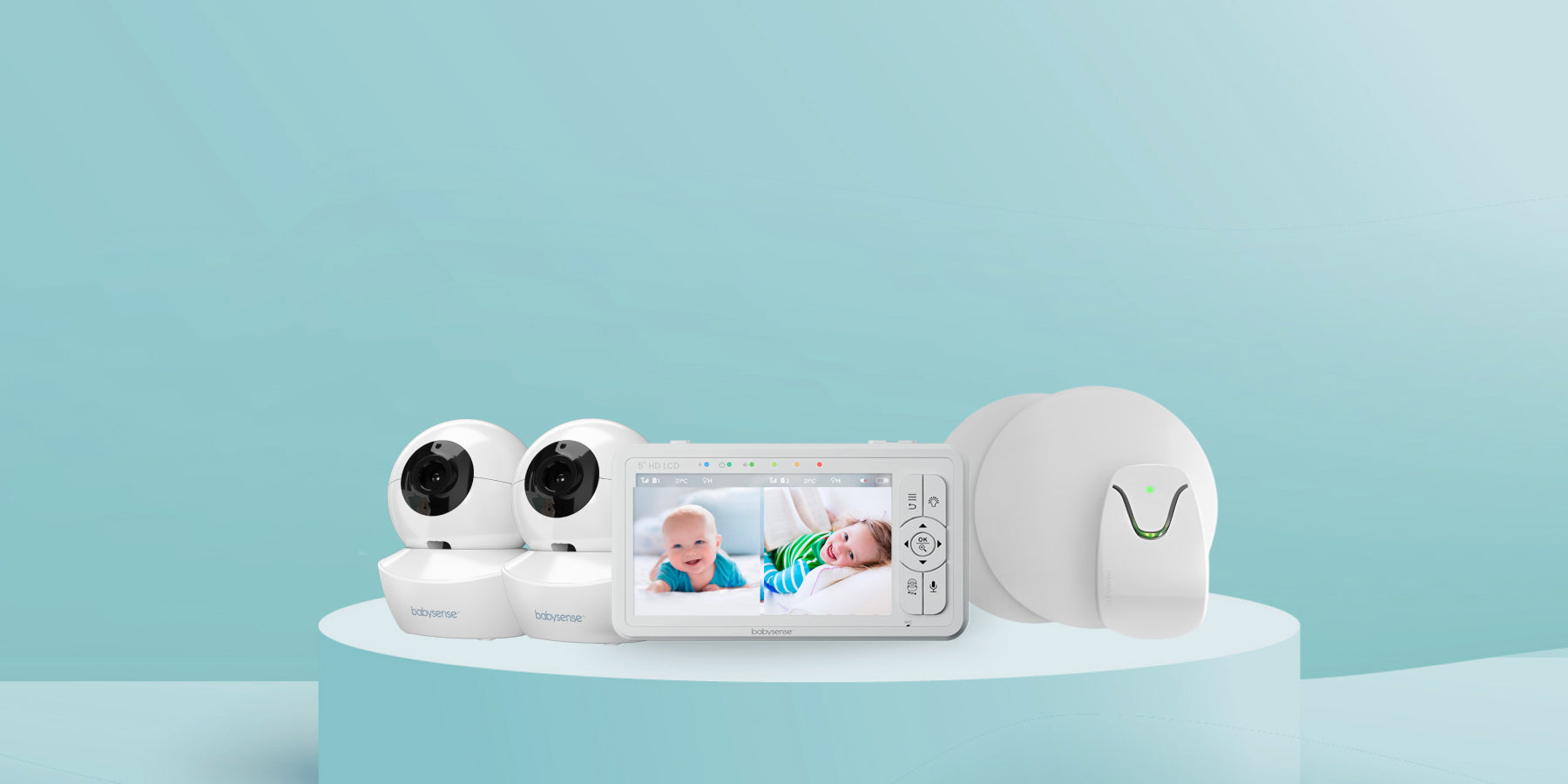One of the biggest moments in your baby’s first year of life is when they begin to grow teeth. Teething is a major time for a baby’s growth and development and certainly one of the most visible changes your baby will undergo.
Although your baby has technically always had teeth—they are just concealed under their tiny gums—at a certain point in the first year, they will begin to emerge, and you’ll be able to see them. This is both an exciting moment (your baby is growing up!) and an extremely stressful one, as your child goes through a significantly painful growth experience.
One of the more frustrating and stress-inducing elements of teething for parents is the impact on your baby’s sleep cycle. Between the rapid growth and the pain involved, you may notice that your baby’s behavior in the sleep department has changed.
A question many parents have is about whether or not their baby may be sleeping more due to teething. Although this may seem counterintuitive due to the painful and disruptive nature of teething, there is indeed some truth and logic behind this question.
Read on to learn more about how teething impacts a baby’s sleep.
When Do Babies Start Teething?
Like most growth milestones, teething can happen at different times for different individuals. Although the common age for teething is around six months, many babies begin teething as early as three months or as late as their first birthday. Regardless of when teething begins, most people will have a complete set of baby teeth by the time they are three years old.
The Teething Timeline
While babies can begin teething at different ages, there is still a fundamental process to teething that stays consistent for most children.
The first teeth to emerge are often the central incisors on the bottom row. These will be located in the center of your baby’s bottom row of gums. After a few months of teething, the central incisors on the top row will begin to emerge.
Your baby’s toothy smile will likely then start to fill out, with the lateral incisors growing out on the top and then the bottom. For reference, the lateral incisors are the teeth that bookend the central incisors.
The top and bottom molars will likely follow the emergence of the central and lateral incisors. In total, most babies will usually have a set of 20 baby teeth that eventually grow in.
In terms of age, the bottom incisors begin to appear between six and ten months, and the top incisors follow between eight and twelve months. Molars typically come in between 13 and 19 months. However, it is always important to remember that each person is different, and the pace of the teething process can vary greatly from baby to baby.
A good rule of thumb for health care is to schedule a pediatric dental appointment when you can see your baby’s first tooth. Dental health will be an important element of your child’s overall wellbeing, and starting care early is essential for both catching any health issues and supporting you in figuring out the best way to clean your kiddo’s chompers.
Baby Teething Symptoms
There are several clear signs to be on the lookout for when your baby begins teething. Some of the basic symptoms include drooling, swollen or irritated gums, and increased chewing on solid items.
Parents should also consider their child’s temperament. If your baby seems more irritable or fussy, it may be a sign that they have begun the painful process of teething.
Another significant sign is a change in your baby’s appetite. If it seems like they are eating less, and they also have symptoms of gum irritation and pain, that’s a good signal that teething has begun.
If teething is impacting your baby’s ability to eat, try out chilled, soft foods like yogurt and puree. It’s also important to keep your baby well-hydrated since the increased drooling associated with teething will result in your baby losing more fluids.
A word of caution: although decreased appetite and irritability are both common signs of teething, high fevers and other symptoms of illness are not caused by teething. If your child is exhibiting symptoms that seem abnormal for teething, consult your pediatrician.
Does Teething Impact Sleep?
Simply put: yes. When your baby is teething, their body is going through a major growth period, plus they are in a remarkable amount of pain. As a result, the teething process can disrupt your child’s sleeping behavior in several ways.
The most commonly observed impact on sleep is an inability to stay asleep or fall asleep. Your baby will likely feel cranky and uncomfortable while teething, tossing and turning all night and likely needing more attention and care from parents.
Teething can also increase a baby’s body temperature, causing them to feel sweaty and unable to be comfortable enough to sleep.
However, it is also possible that the exhausting process of teething may tucker your little one out. This is especially plausible when your baby has a tooth about to break through the gum, which is often accompanied by a low-grade fever.
Your child may also be sleeping more due to other major growth processes that are occurring simultaneously with teething. Growing requires energy, and your baby will require more rest to account for all the work their body is doing!
Tips for Soothing a Teething Baby
Teething is tough, there’s no real way around it. However, there are some useful home remedies to make your little one more comfortable and to help yourself from going crazy.
Applying pressure and chilled items to your baby’s gums can be a productive way to calm down the irritation. Offer your baby a cool teether or blanket to chew on. In the meantime, try to avoid skin irritation by regularly wiping the drool and dribble from your baby’s face.
In regards to sleep, it is important to try to stick to your baby’s routine as much as possible. Even if your baby’s sleep has become irregular, it is still best to stick to a consistent bedtime. When your baby is having trouble sleeping, feel their tummy and neck to check if they are warm, and remove any blankets or layers that may be bothering them. Try putting them to bed with a chilled teether so they have a means to self-soothe as they try to sleep.
Be sure to check in on your baby using your video baby monitor.
That being said, don’t feel bad if you have to make adjustments when dealing with a teething baby. Your child is genuinely going through a lot, and it is more than okay to give them that extra comfort and support they need while growing.
Final Thoughts
Some babies will teeth quietly and show no symptoms until they wake up one night howling, while others will experience general fussiness over a prolonged period. No matter how your baby responds to teething, there are plenty of simple home remedies to help them, from serving soft foods to giving them chilled comforters and having extra cuddle time before bed.
As your baby grows and goes through the teething process, you will learn what works best for them, including how their sleep needs change. Teething can be a hectic and stressful time, but it doesn’t last forever—every baby goes through it, and your family will make it out okay. In the meantime, try to cherish all of the growth and magic moments of their first year of life.





